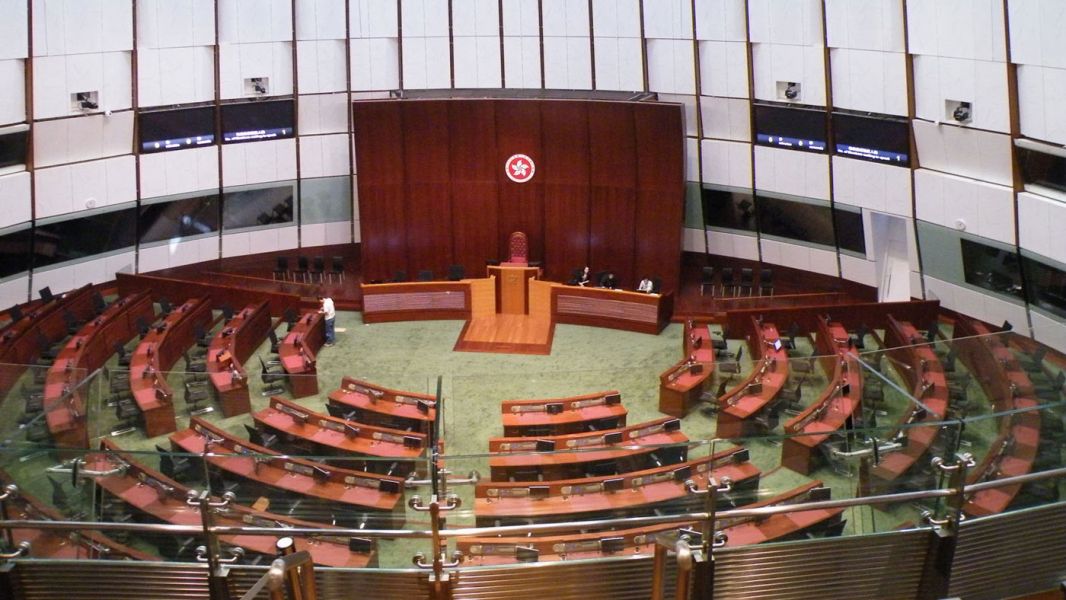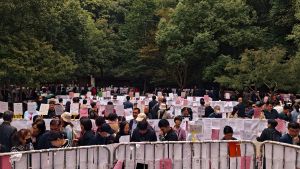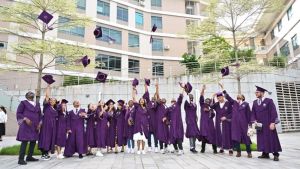
Restructuring the Political Society during Autocratisation: The Case of Hong Kong
The case of Hong Kong illustrates a problem not discussed in the literature on democratization. Is it possible to create and have a functioning democratic political subsystem within a nondemocratic state? Can a democratic political subsystem exist within the overall framework of a totalitarian or post-totalitarian state? Politically, probably not—because of the example that it would provide for the citizens of the larger unit to see one region enjoying freedoms to which they would not have access. This dissonance would generate a persistent temptation for the sovereign state to subvert those democratic institutions. But there is a more serious and principled constitutional difficulty. The state would still have the right to modify the political status of any component unit.
— Juan J. Linz and Alfred Stepan (1996: 19)
According to the recent literature on the subject, scholars agree that contemporary autocratisation tends to be gradual. Such gradual practices include the demeaning of oppositional voices, court packing, and the curtailment of media freedom (Bermeo 2016; Lührmann and Lindberg 2019; Maerz et al. 2020). The most blatant, sudden, and drastic moves to authoritarianism, such as military coups or executive emergency decrees, are less common nowadays. However, the autocratisation process in Hong Kong since 2020 does not square with this conventional wisdom—a deviation that makes it an important case to analyse. In this essay, I highlight one aspect of autocratisation that is understudied in the existing literature—namely, the restructuring of political society.
Political society, according to Linz and Stepan (1996), is the ‘arena in which the polity specifically arranges itself to contest the legitimate right to exercise control over public power and the state apparatus’. The main elements of political society include political parties, voters’ associations, electoral rules, and legislatures. Crucially, as noted by Ma (2007), authoritarian regimes, in general, do not tolerate an independent political society to contest state power. This point is certainly vindicated by the recent autocratisation process in Hong Kong. From mid-2020 onwards, we notice that the Chinese Communist Party (CCP) and the local government have attempted to restructure Hong Kong’s political society by two main measures: the National Security Law (NSL) of 2020 and the electoral reform in 2021.
In this essay, I recount how these measures have restructured Hong Kong’s political society and discuss the implications. First, I argue that the NSL trial against opposition activists has signalled the CCP will hold the state power tightly and that the cost of being an opposition politician has increased. These two signals, in turn, have contributed to the disbandment of opposition parties. Second, I outline the electoral reform of 2021, which has reinforced Hong Kong’s candidate-filtering tradition and presents the opposition camp with a lasting dilemma. Last, I highlight how the restructuring of political society can affect the establishment camp and the government, drawing attention to three phenomena that need further study.
The NSL Show Trial and Its Political Signals
The NSL can be regarded as autocratisation by decree—a situation in which authorities make use of previously unavailable powers to combat an immediate threat to the regime (Lührmann and Rooney 2021). Though the long-term impacts of the NSL remain to be seen, it hardly needs saying that the trial of the participants and organisers of the opposition primary elections marked a watershed in Hong Kong’s political development.
On 28 February 2021, 47 opposition activists were charged with ‘conspiracy to commit subversion’ under the NSL. Under the new judicial setting, there are designated judges to deal with NSL-related charges and they can decide whether juries are necessary. Several characteristics of this NSL trial made it dissimilar to previous political trials. First, only one-third of the activists were granted bail, and they must adhere to requirements that severely restricted their civil and political rights. These include prohibitions against: 1) expressing any opinion seen to be violating the NSL or local ordinances that maintain national security; 2) organising, participating in, or coordinating any level of election (except voting); and 3) making contact with any foreign officials or parliamentarians. Second, many of the 47 opposition activists on trial renounced their party membership. As they held important leadership roles in their parties and acted as spokespeople, the renouncement of membership was likely a temporary shock to the party’s daily operations. Third, some of those who were denied bail even advocated disbanding the parties to which they once belonged. Specifically, four former influential members of the Civic Party, which belonged to the moderate faction, jointly wrote a letter proposing to disband the party, for they believe it could no longer participate in the Legislative Council (LegCo) elections and its district councillors risked disqualification from their public offices (Stand News 2021). Finally, among the activists on trial, some publicly announced they would retreat from politics during the trial.
At the time of writing in December 2021, it is still largely unknown what happened to the 47 opposition activists during their interrogation and what their prison terms will be. Yet, this NSL trial sent two clear signals to the opposition camp. The first is that the communist one-party system does not tolerate any contestation of state power from the opposition camp. When, in the spring of 2020, the opposition camp initiated primary elections to coordinate candidates, the key organiser, Benny Tai, asserted that one main goal was to leverage the LegCo election and the legislative proceedings to create a constitutional crisis [1]. However, as the NSL trial de facto cancelled the political rights of opposition elites, it signalled that the CCP would not allow the opposition any opportunity to exercise control over the state apparatus. Even for moderate opposition leaders, no mercy would be granted once this red line was crossed. In this way, the trial made clear that opposition coordination to contest state power would bring severe punishment, putting an end to this strategy for the foreseeable future.
The second signal is that the cost of being an opposition politician is now tremendously higher, no matter whether one belongs to the moderate or the radical faction. As the opposition elites involved in the trial are either in jail or prohibited from participating in elections, other politicians from both factions have had to weigh the costs and benefits of their own involvement in politics. To avoid or curtail such costs, they have adopted two strategies. On one side, some have chosen to retreat from politics or go into exile. On the other, some have stayed in the political society but renounced their party membership, since their affiliation with an opposition party can be perceived as a desire to contest state power. Either choice affects the operations of opposition parties, which were underdeveloped to start with (Ma 2018).
As contesting state power is no longer a possibility, and opposition elites are in prison, in exile, or have abandoned their party membership, one can expect these parties to disband. To document this phenomenon, I created a dataset that includes the lifespan of all opposition parties that took part in the 2016–21 election cycle [2]. To qualify as a party in my dataset, the entity must: 1) have fielded at least two candidates in either the 2016 LegCo Geographical Constituency (GC) election or the 2019 District Council (DC) election; and 2) have won at least one seat in either of these two direct elections. In the case of an entity that participated in the 2016 elections for the LegCo’s Functional Constituency (FC)—whose electorate is sectoral organisations or individuals working in a particular profession—the entity had to win at least one seat. This dataset includes 41 parties—about one-third of which were created in the post–Umbrella Movement period (that is, between the end of 2014 and March 2019), and another third was established just before the 2019 DC election. This speaks to the idea that the proliferation of parties can be induced by large-scale social movements, as opposition elites seek to use the electoral arena to mobilise their constituents and put pressure on the authoritarian incumbents (Mok 2020; Shum 2021).
Regarding the disbandment pattern, I found 13 parties had publicly announced their disbandment. This accounts for 31.7 per cent of the opposition parties in the dataset. Most were formed either after the Umbrella Movement or during the anti–Extradition Bill movement; conceivably, their advocacy was mainly localism or self-determination. Of these 13 parties, nine were disbanded after the NSL trial. Note that this figure can underestimate the withering of opposition parties, as the dataset does not consider the renouncement of party membership and those parties that have become dormant since the NSL trial. Also, the dataset does not include the disbanded professional groups that were formed during the anti–Extradition Bill movement (Ma and Cheng 2021). These professional groups were supposed to participate in the FC elections that should have taken place in 2020 but were postponed by the government in the name of the Covid-19 pandemic. Nevertheless, based on these numbers, we can observe the pattern of party disbandment since the NSL trial, and we can conjecture that the opposition camp will be much more elite-centred in the NSL era.
The Spectre of the Communist Electoral System
Undoubtedly, the political signals being sent during the NSL trial are not the sole factor behind the restructuring of political society in Hong Kong. To fully account for this process, one also needs to consider the electoral reform of 2021, which was guided by the motto ‘patriots governing Hong Kong’ (愛國者治港). In this section, I describe how this reform reinforces the previous candidate-filtering tradition and analyse how it fundamentally reshapes the competition for state power.
As many scholars have remarked, communist one-party systems have a tradition of keeping tight control of election nomination procedures (Gandhi and Heller 2018; Landry et al. 2010; Pravda 1986). The rationale is to leave no doubt about whom the people will choose as their representatives in charge of the state apparatus. To ensure this political certainty, a common manipulation technique is to filter candidates. This is nothing new in Hong Kong’s executive and legislative elections. For instance, since the handover of Hong Kong, there has been candidate filtering in the Chief Executive (CE) election: the CE candidates had to be nominated and voted for by an Election Committee (EC) composed of 1,200 members who were supposed to represent the interests of different sectors, professions, and businesses. Also, after the 2016 LegCo election, the Electoral Affairs Commission (EAC) started to restrict the candidature, and member-elects from the radical faction were disqualified for not taking their oath properly (Chan and Ng, forthcoming; Fong 2021; Yuen and Chung 2018).
Despite this continuity, there are some crucial differences in the electoral reform of 2021. First, in the CE election, the expanded 1,500-member EC has created a fifth sector: the so-called patriots’ sector (愛國者界別). This includes delegates to the NPC and the Chinese People’s Political Consultative Conference (CPPCC) in Beijing, as well as Hong Kong representatives of mass organisations on the mainland, including the All-China Women’s Federation, the All-China Federation of Industry and Commerce, and the All-China Youth Federation—bodies whose names are largely unknown in Hong Kong. Though delegates to the NPC and CPPCC were present on previous ECs, one should note that their proportion has increased, and the creation of this fifth sector enhances their importance. Second, the EC and CE candidates now must be vetted by the National Security Department of the Hong Kong Police Force (警務處國家安全處), the Committee for Safeguarding National Security (維護國家安全委員會), and the Candidate Eligibility Review Committee (候選人資格審查委員會). Third, the sectors in the EC that use organisation vote surge while those that use personal vote plummet. This rule is certainly used to target the sectors that were opposition strongholds, such as accountancy, legal, education, medical and health services, and social welfare. Fourth, it now excludes district councillors from the selectorate, which can be attributed to the opposition’s landslide victory in the 2019 DC election. At the time of writing in December 2021, 326 opposition district councillors had lost their seats, having either resigned due to the threat of disqualification and the related financial liabilities or been disqualified because the Home Affairs Bureau declared their oath-taking invalid. This overturning of electoral results follows the candidate-filtering tradition. Without question, this reform ensures the opposition camp has no power to nominate CE candidates, reducing their ability to introduce uncertainties in CE elections.
Concerning the LegCo election, there are settings in this reform that further institutionalise the candidate-filtering element as well, undermining both radical and moderate factions. First, the distribution of seats has changed. In the 2016 election, the GC and FC both had 35 seats respectively. But after the reform, the composition of the LegCo is as follows: 40 seats are chosen from the EC, 30 seats are reserved for the FC, and the GC has 20 seats. This composition denotes the marginalisation of the GC, meaning the direct election is less important than before. Second, candidates—whether from the EC, FC, or GC—must collect at least two nominations from each of the five EC sectors. As such, if the opposition elites enter the LegCo election, they must receive nominations from the patriots’ sector, which, as we have seen, comprises Hong Kong representatives to the NPC, CPPCC, and other mainland organisations. Third, the vetting procedure for EC and CE candidates also applies to LegCo candidates. Overall, as the GC in the NSL era constitutes a small part of the LegCo and candidates must undergo a more restrictive filtering mechanism, the opposition camp—even the moderate faction—has far fewer incentives to participate in elections.
Put metaphorically, the state power is now like a holy grail that is locked in tens of thousands of safes, and the opposition camp can hardly touch it. One should note that such a restrictive electoral system presents a dilemma to the opposition camp. On the one hand, if opposition parties/elites boycott all elections, they will receive far fewer resources and media attention. They then need to consider how to sustain their daily operations and the role they can play in society if they do not enter the election game. On the other hand, if opposition parties/elites participate in such unfair elections and accept the Faustian deal, it is rather certain that they will hardly be able to challenge the regime and will most likely play a purely ornamental role in elections and the legislature. Hence, these opposition parties/elites need to justify their decision and convince opposition supporters that they are still representing the opposition camp. As long as the electoral system is unchanged, this dilemma for the opposition camp will persist.
What about the Establishment Camp and the Government?
So far, I have highlighted how the NSL trial and electoral reform affected the opposition camp. However, the restructuring of Hong Kong’s political society also affects the establishment camp and the local government. In this section, I discuss three relevant phenomena that deserve more research.
The first concerns the conflicts among the establishment elites within the legislature. In the NSL era, the establishment camp will surely dominate the LegCo, and new faces will emerge. However, such dominance does not imply an absence of conflict. Previous studies already found that pro-establishment elites were not united on all fronts before the NSL era (Ma 2007; Smyth et al. 2019; Wong 2020). So, as the democratic–authoritarian cleavage wanes in salience in the legislature, disagreements between establishment elites will come to the forefront. Such disagreements may be driven by different positions on economic issues (such as spending on welfare and public housing) or different interpretations of what loyalty to the CCP means. During the 2021 LegCo election campaign, these disagreements already became more salient. Moreover, as mentioned in the previous section, candidates for the three cohorts—EC, FC, and GC—must collect nominations from each of the five EC sectors. What the nomination networks look like for different candidates and whether these networks are manifestations of establishment factions remain open questions.
The second phenomenon concerns the relationship between establishment legislators and the government. Before the NSL was imposed, the role of establishment legislators was to defend the government against the opposition, helping it to pass policy. But in the NSL era, the dominance of the establishment camp is guaranteed. As such, the establishment legislators can no longer attribute policy failures to the opposition camp’s hindrance. Also, the establishment legislators of the three cohorts have their respective constituents, be they pro-government citizens, professional groups, social groups, or corporate actors. The establishment legislators have to represent the interests of these constituents, but these interests do not necessarily align with those of the government. Hence, more research will be necessary to study the circumstances in which establishment legislators will challenge or follow the government’s policy agenda.
Finally, the restructuring of political society might come with a cost for the local government—namely, an information cost. In the authoritarian election literature, it is well known that elections can reveal citizens’ discontent and the popularity of authoritarian incumbents (Brancati 2014). Yet, following the electoral reform, any opposition candidates who enter the election will be unable to represent citizens’ demands for democratisation, self-determination, or independence. As long as these polity demands do not disappear, the local government will have to directly confront them in the civil society, for the opposition elites who represent these demands will no longer be found in the legislature. Put differently, the legislature in the NSL era is unable to serve as a pressure release valve to reduce citizens’ discontent with the polity question. Which strategies the government will adopt to confront or tame these demands is also an open question.
Unfolding the Mission Impossible
In the epigraph to this essay, two prominent scholars of democratisation, Juan Linz and Alfred Stepan, prognosticated that it would be impossible for Hong Kong to achieve full democratisation within the communist one-party system. The reason they provided is that the authoritarian sovereign state has every right to modify the subnational entity’s constitution and restructure its political society. Their prognosis has now been vindicated by Hong Kong’s recent autocratisation process.
In this article, I tried to fill in the details by studying how the communist one-party system has restructured the political society of this subnational entity. It is obvious that, in the NSL era, the CCP no longer allows an independent political society to contest state power. Nevertheless, such restructuring is not without cost. As mentioned above, legislators—even self-declared opposition candidates—can no longer represent citizens who stand for democratisation, self-determination, and independence. Therefore, if such polity demands do not fade, the government will still have to confront these citizens outright in the civil society.
The author would like to thank San-Ho Chung, Chit-Wai Mok, and the editors of the Made in China Journal for their valuable comments.





